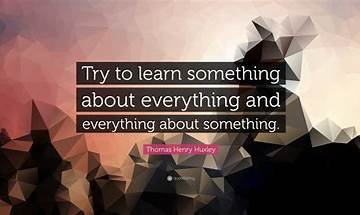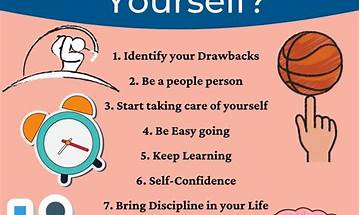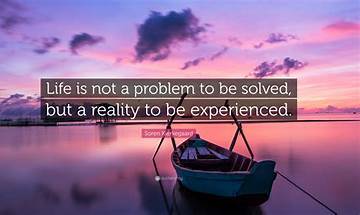"Augmented Sage": "Poor people live in downtown areas and no one asks, while rich people have distant relatives in the mountains."

There is a famous saying in "Augmented Xianwen": "The poor live in the downtown area and no one asks, but the rich have distant relatives in the mountains."
This sentence simply reveals two different phenomena of poverty and wealth. It tells us that when a person is poor, he is in a busy downtown but no one cares; When a person is rich, even if he lives in a remote place in the mountains, someone will come to visit him at any time. This sentence contains profound practical significance and is worth remembering and applying in our lives.
First of all, let's discuss the scene of "poor living in downtown". Poverty puts people in trouble and is ignored or cared about. This situation can be demonstrated by many cases. Imagine a person living in an urban slum. They may be discriminated against and neglected, and the people around them are almost indifferent to their existence. Their status in society is low, they lack social resources and attention, and no one cares.
On the one hand, this situation reveals the reality of the gap between the rich and the poor in society, on the other hand, it also makes us realize that poverty is not only a material dilemma, but also a lack of social recognition and respect.
On the other hand, "wealth has distant relatives in the mountains", we can understand that rich people get more respect and attention because of their wealth or status. Although they live in remote mountains, distant relatives come to visit them on their own initiative. Some examples can also be found in real life.
For example, successful businessmen or celebrities, even if they live in distant private estates, often have friends and respects gathered around them. This is because wealth and success bring resources and social status, thus attracting more people's attention.
What is the practical significance revealed by this famous saying?
It reminds us to realize the social preference and prejudice for wealth and status. Unfair phenomena can be seen everywhere around us. On the surface, it seems that wealth determines a person's value and importance. But this phenomenon is unfair, and we should reflect on it and try to change it.
So, how can we make changes in our lives according to the enlightenment of this sentence?
First of all, we should pay attention to the poor and vulnerable groups and give them support and care. We can actively participate in charitable activities, provide help to poor areas, and strive to promote the improvement of social fairness and justice.
Secondly, we should pursue a more inclusive and equal social concept, and judge a person's value not by wealth and status, but by their moral character and contribution. Only in this way can we truly achieve social progress and development.
This sentence leads us to realize the gap between the rich and the poor in society and calls on us to pay attention to the disadvantaged groups and pursue fairness and justice. We should keep this sentence in mind and integrate it into our lives to actively promote social change and improvement. In this way, we can contribute to creating a fairer and more inclusive society.
At the same time, this sentence also reminds us to remain humble and Do not forget your initiative mind.
No matter whether our social status is high or low, we should remain modest and true. Wealth and status can't measure a person's character and value, they are just external signs. We should not feel inferior because of our poverty, nor should we be arrogant because of our wealth.
We should believe that everyone has his own value and ability, and can do meaningful things no matter where he is.
In real life, we can use this as a guide to shape our behavior and values. No matter what our wealth is, we can practice the meaning of this sentence by caring for others and helping others.
We can lend a helping hand to those in need, whether through volunteer work, donation, or support and encouragement to others. In addition, we can also maintain a modest and cautious attitude towards life, not blindly pursuing material wealth, but focusing on inner growth and the establishment of interpersonal relationships.
Through these practical actions, we can make the phrase "poor people live in downtown areas without asking, rich people have distant relatives in the mountains" be put into practice in our lives, and make the world more just and equal.
Therefore, we should bear in mind the practical significance of this sentence, not only to remind ourselves of the problem of social inequality at all times, but also to inspire us to make meaningful changes in our lives. No matter where we are or what our status is, we have the ability to change and influence others through just and caring actions.
By remembering and applying "no one asks if the poor live in a busy city, and the rich have distant relatives in the mountains", we can become a positive force to promote the development of society in a more just and equal direction.
This sentence also reminds us to cherish the true affection and friendship. In modern society, wealth and status often become the motive force of mutual concern and communication between people. However, we must choose the people we associate with wisely to avoid being confused by superficial interests.
When we encounter wealth or success, we will find that many "relatives" and "friends" suddenly appear around us, pursuing interests and privileges. This is consistent with what we call "rich in the mountains has distant relatives".
However, we must keep a clear head and understand the nature of these relationships. True affection and friendship are not based on wealth and power, but on sincerity, trust and mutual support. In our life journey, we should look for people who are truly connected with our hearts and can support us when we are in trouble. Only in this way can we truly appreciate the precious value of interpersonal relationships.
"No one asks if you live in a busy city, but if you are rich, you have distant relatives in the mountains" is an observation and reflection on social phenomena. It reminds us not to be blinded by the appearance of material and status, but to really pay attention to the inner value and significance. Regardless of our social status, we should treat others with the same humility and care.
We can practice this principle by paying attention to the disadvantaged groups, expressing friendliness and sincere concern. Only on this basis can we establish truly profound and meaningful interpersonal relationships and make contributions to social development and progress.
Therefore, we should understand and remember from the depths of our hearts the importance of the phrase "no one asks if you live in a poor city, but you have distant relatives if you are rich in the mountains". We should pay attention to social inequality and the gap between the rich and the poor, speak for the disadvantaged groups and pursue social fairness and justice.
We should remain modest and true, be kind to others, and cherish true family ties and friendship. Through such thinking and action, we can become a positive force and contribute to creating a more harmonious and just society.
Declaration: All article resources on this website, unless otherwise specified or labeled, are collected from online resources. If the content on this website infringes on the legitimate rights and interests of the original author, you can contact this website to delete it.






